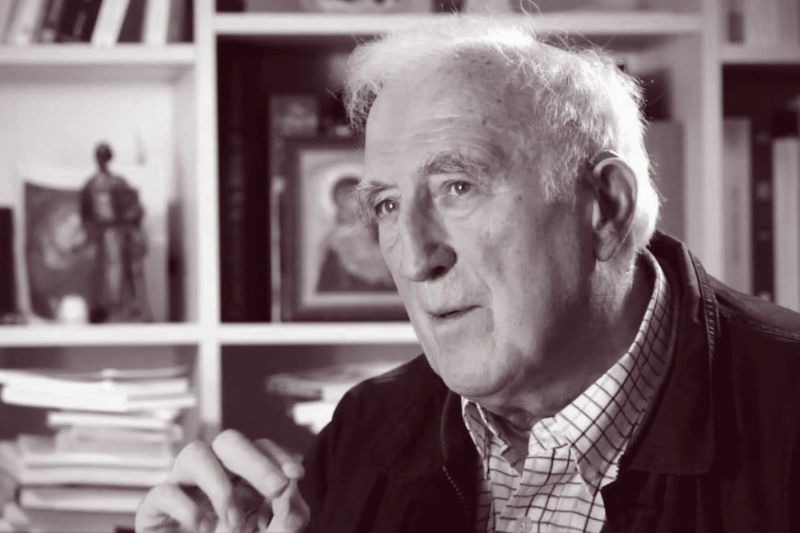In an article I wrote four years ago to mark Jean Vanier’s passing, I spoke of the way in which he had recognised disabled people as being truly people, and accordingly limited. It has since transpired that there was a far darker side to Jean Vanier. A 900 page report commissioned by L’Arche, the most famous organisation which he founded, has discovered that during the period from 1952 to his death in 2019, Vanier was involved in at least twenty-five abusive relationships with women.

Vanier’s seductive approaches to the women all seem to have begun in the same way and all the patterns of abuse seem to have closely followed those established by Vanier’s spiritual mentor and collaborator, Thomas Phillippe OP, at a community called L’Eau Vive (Living water). Participants were persuaded to be part of a 'mystical sexual' relationship, parodying that of Joseph and Mary, which saw Vanier and Phillippe involved in a 'continuum of sexual violence marked by the experience of influence, abuse of authority and more generally by the confusion of spiritual, affective and sexual spheres.'
Despite Phillippe’s removal from priestly ministry and the dissolution of L’Eau Vive by the Holy Office, the report finds that aspects of both the understanding of community and the spirituality (including the idea of closeness to the vulnerable) were imported into L’Arche (although none of Vanier’s victims, it seems, were disabled). So, too, were the involvement of Fr Phillipe, the abusive relationships and, when it came to Vanier’s exercise of authority and spiritual direction, the bogus sexual spirituality.
In some ways, the litany of horror revealed by the report is one which is common to much of the story of abuse within the Church. The compartmentalisation of personality and identity leading to an absolute denial of wrongdoing, the secrecy, the spiritualisation of abusive conduct and the misuse of relationships of trust and authority are all too familiar to anyone who has even a passing knowledge of the broader sexual abuse crisis within the Catholic Church. Though Jean Vanier was a layman (Philippe, of course, was not), the patterns of his abuse followed similar toxic lines to those of clerical sexual offending.
What is extraordinary — but something of a double-edged sword — is the impact on L’Arche itself. Many of the survivors were part of the L’Arche Community and Vanier’s vision of L’Arche as both spiritual work and as community was undoubtedly tainted by his sexualised understanding of that spirituality. Tony Robertson (a long time L’Arche member) points out a phrase in the blurb for the film Summer in the Forest: 'if there are rules to break, they will be broken', which looks ominous and terrifying in hindsight.
'While the emerging truths about Jean Vanier have devastated L’Arche communities around the world, the communities themselves — and the movement which they form — have remained intact and welcoming.'
And yet… it has been L’Arche itself which commissioned both the initial report in 2020 which unmasked Vanier and which established the study group which wrote the current report. While the emerging truths about Jean Vanier have devastated L’Arche communities around the world, the communities themselves — and the movement which they form — have remained intact and welcoming. Safety protocols have been put in place which protect L’Arche members and others. Core members (those who experience cognitive impairment) and others have faced the terrible truths about their organisation’s founder with unflinching courage and integrity. The reports have been published in full, in summary, and in easy-read accessible format for those with cognitive impairment. In contrast to the situation with so much of the abuse in the Church’s history, there has been no whitewashing, no excuse, no concealment.
This, too, then has been part of the legacy of Jean Vanier. The organisation has transcended its founder. That is, of course, not to say that it is summer in the forest once more. L’Arche’s understanding of itself and of Vanier will never be what it once was.
Part of the incredibly difficult and painful process which the report has left to the organisation is working out exactly which aspects of its spirituality and its identity need to be revisited in light of the revelations of their decades-long abuse by a founder regarded, for so long, as the very embodiment of saintly inclusivity. It will be a painful process of re-evaluation and renaming the elements of identity which are key to a community which genuinely lives equality and the promise of a world where impairment does not necessary imply disability. L’Arche’s commissioning of the report and its response, however, suggests that it is a task for which it is — with the prayer and support of all of us in the broader community who wish it well — as well equipped as it can be.
Fr Justin Glyn SJ has a licentiate in canon law from St Paul University in Ottawa. Before entering the Society he practised law in South Africa and New Zealand and has a PhD in administrative and international law.
Main image: Jean Vanier (Vatican News)